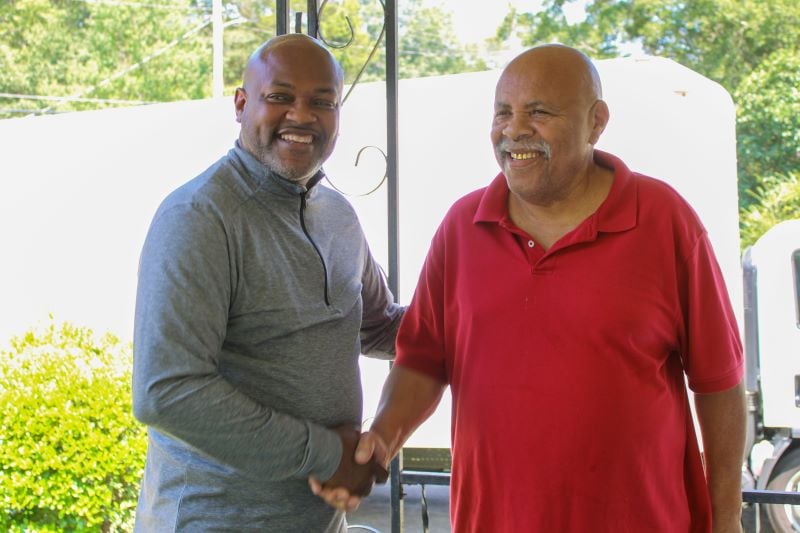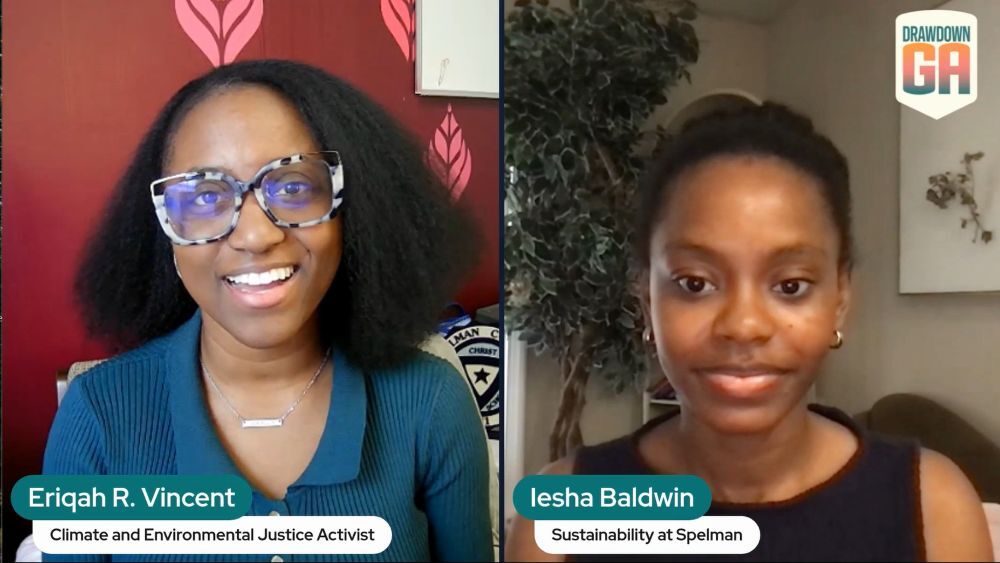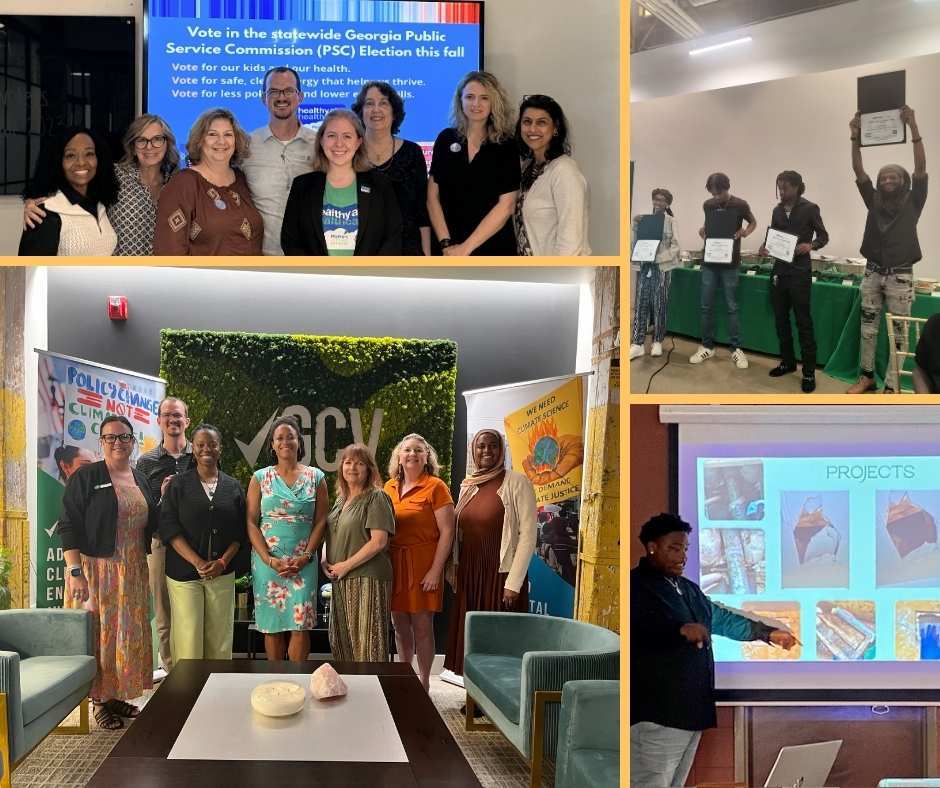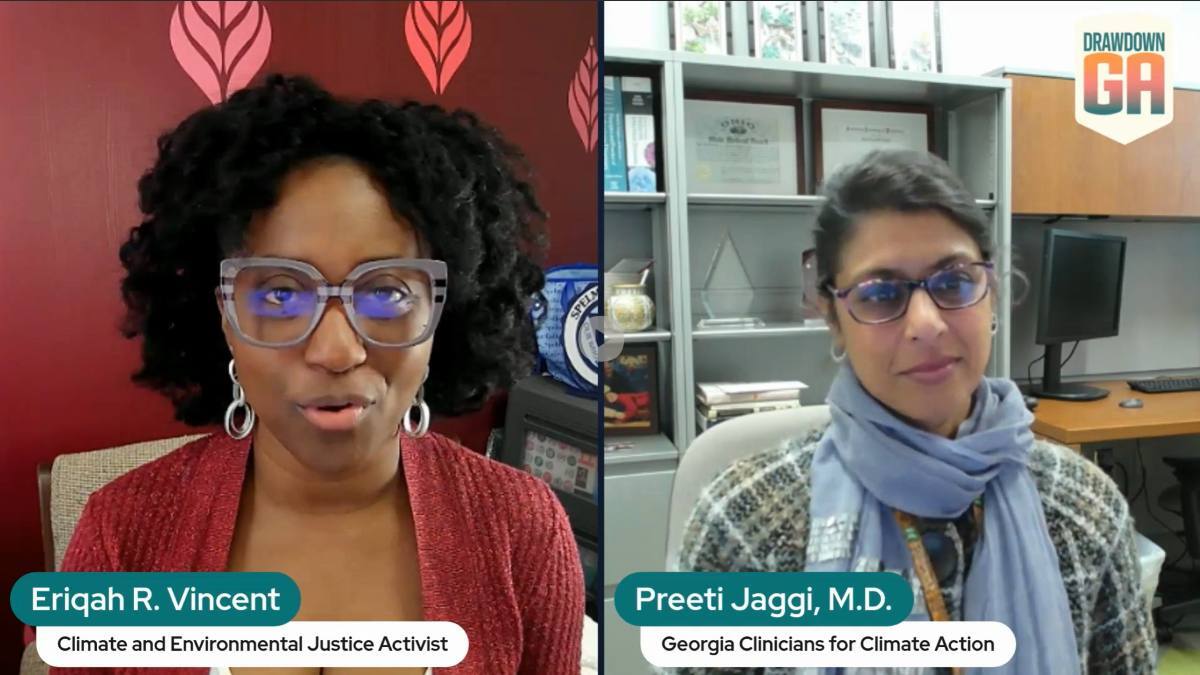Energy-efficient retrofits are an important climate solution for Georgia. Why?
Buildings use electricity and natural gas for heating, cooling, ventilating, water heating, lighting, and to power appliances and electronic devices. Up to 30% of greenhouse gasses globally come from these sources. Retrofitting existing buildings to make them more efficient has tremendous potential to accelerate our progress on climate.
As with all Drawdown Georgia climate solutions, home energy efficiency upgrades have benefits that go Beyond Carbon. They reduce energy bills, reduce pollution, and benefit the natural environment.
Groundswell is Scaling a Climate Solution with an Emphasis on Equity
Many low- and moderate-income Georgians live in older homes that lack sufficient insulation and don’t have access to newer energy-saving appliances. As a result, they often have higher-than-average energy bills, especially when these bills are viewed as a percentage of household income.
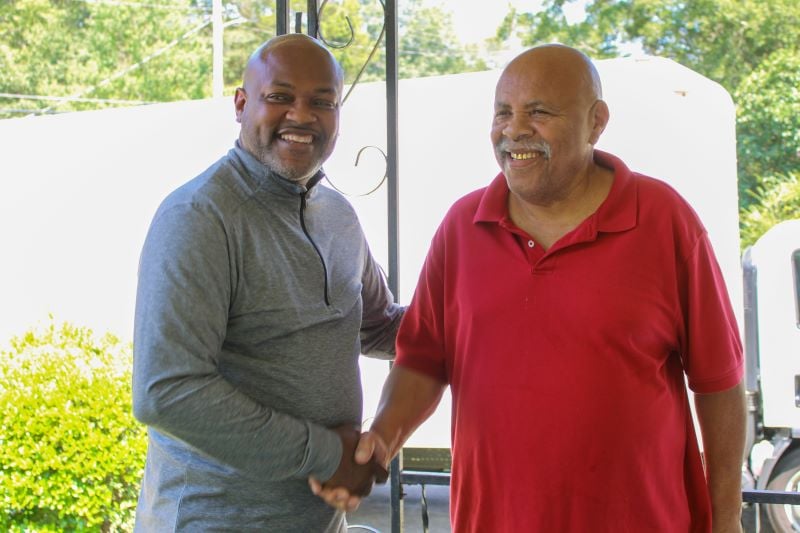
Groundswell is a nonprofit working across Georgia and several other states to bring energy efficiency upgrades to low- and moderate-income communities, invest in clean energy projects, and much more. The organization is also the recipient of a 2024-2025 Drawdown Georgia Climate Solutions & Equity Grant to help expand their work.
We interviewed the team at Groundswell to learn more about how this organization is working to help Georgia families in need and reduce carbon emissions at the same time.
Tell us about the clean energy work that Groundswell does.
Groundswell builds community power through clean energy programs that serve low- and moderate-income households with deep energy burden reductions.
So far, we’ve delivered more than $6.8 million in clean energy savings through community solar, resilience centers, and home energy efficiency. We envision equitable clean energy futures for everyone that generate wealth, work, and savings for local communities.
Why is your work retrofitting homes so important in the communities you serve? What needs does your work address?
In Georgia and across the country, households with the lowest incomes have the highest energy burdens, which is to say high energy costs compared to income, especially in rural communities where the average energy burden carried by low-income households often exceeds 20 or even 30 percent.
The primary cause is old, inefficient housing. In West Georgia, where Groundswell is working, we frequently see homes built in the 1940s and 1950s with no insulation, old appliances, and utility bills that exceed $500 per month.
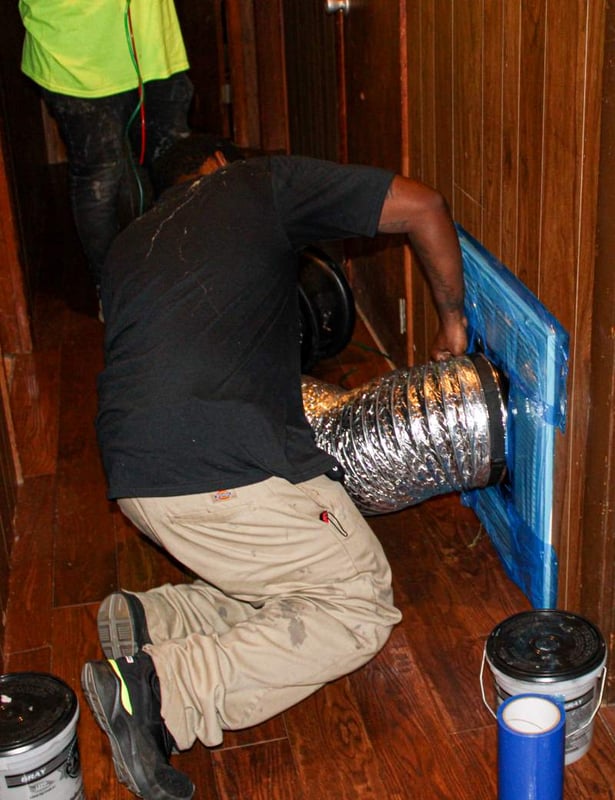
High energy burdens put a strain on household finances and often force families to choose between necessities like medicine and groceries versus keeping the lights on. That choice is a no-win scenario for families.
Groundswell finds creative solutions to reduce household energy burdens and directly address the cause of that impossible choice. The benefits go beyond financial savings. Many of the people we serve report that lower energy burdens have improved their quality of life.
How is your SOUL program helping to scale climate solutions in Georgia?
Groundswell’s SOUL™ (Save On Utilities Long term) program puts energy efficiency to work as an investment in housing equity that reduces utility bills and carbon emissions at the same time.
SOUL uses a “Pay As You Save (PAYS®)” approach to pay for efficiency improvements with energy savings. The program develops plans for individual households by focusing on upgrades and retrofits that will make the biggest difference, and that can be adapted for communities across the country.
Tell us about the successes the SOUL program has seen in the communities you are already working with. What have you learned from this work?
The pilot for the SOUL program kicked off in LaGrange, Georgia in 2020, retrofitting 45 homes with energy efficiency upgrades. Participants in the pilot saw up to $500 a year in energy bill savings and $9,879 in lifetime energy bill savings. Many participants in the SOUL pilot reported that they were able to feel comfortable in their own homes for the first time in years thanks to the weatherization improvements made through the program.
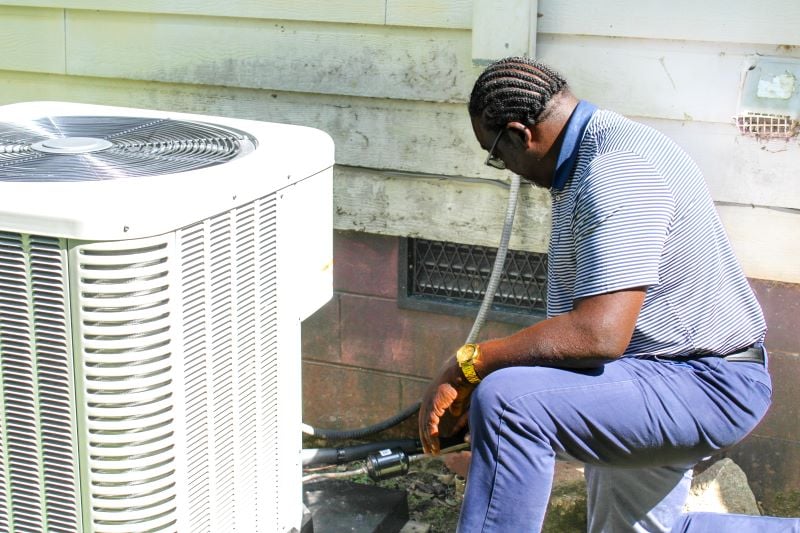
Through our on-the-ground implementation of SOUL, we learned a lot about the extensive repair and maintenance needs that are often present in homes that need energy efficiency upgrades. More than 50 percent of the homes we assessed required roof repair or replacement, mold remediation, plumbing repairs, replacement of rotted flooring, or other maintenance to be able to move forward with even simple weatherization.
In many neighborhoods, these housing condition issues were rooted in histories of segregation and other racist policies, such as redlining, that starved people of resources and access to financing. Identifying funding sources to fill this gap became a SOUL priority.
When funding from the USDA Housing Preservation Grant became available for the program last year, we were able to expand the scope of home repairs available, which expanded our ability to deliver complementary energy efficiency upgrades.
With USDA funding, we served 28 families with more than $500,000 in critical home repairs to address health and safety hazards, including sagging floors and lack of functional bathrooms, which made way for energy efficiency and supported generational wealth building by enabling homes to be passed down to future generations.
Congratulations on receiving a 2024-2025 Climate Solutions & Equity grant. Tell us how the grant will expand your programs.
The Climate Solutions & Equity Grant is enabling our team to bring SOUL to more communities across Georgia, with a focus on small towns and rural counties with high energy burdens, old housing stock, and a lot of families that could put SOUL to good use.
Our SOUL work in West Georgia has taught us how to stack multiple sources of funding and financing from federal, state, local, and philanthropic sources to meet the needs of local families, using energy efficiency as an investment in housing equity.
In fact, our expertise in program funding and financing is equally as important as being good at the technical work of delivering energy efficiency and home repairs when it comes to getting the good work done.
How can interested communities connect with Groundswell to bring your programs to their neighborhoods?
Just give us a call at (202) 505-3051 or email us at info@groundswell.org. Our team here is based in LaGrange, Georgia, and we’ll be delighted to get on a call or hop in the car to meet in person.
How can people follow the work you do and/or get more involved with Groundswell?
We share community resources and updates about our work through our newsletter, and we encourage anyone interested in staying up-to-date on opportunities available to sign up.
We also share regular updates on Facebook, Instagram (@grndswell), and X (@grndswell).
Stay Up to Date on the Progress of Climate Solutions & Equity Grant Projects
Don’t miss out on future blog posts sharing updates from Groundswell and all of the recipients of the Drawdown Georgia Climate Solutions & Equity grants.
Subscribe to receive notifications about future blog posts now.


